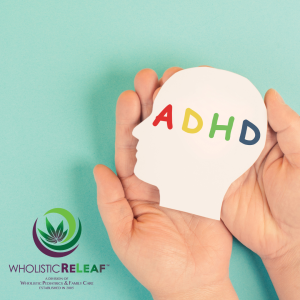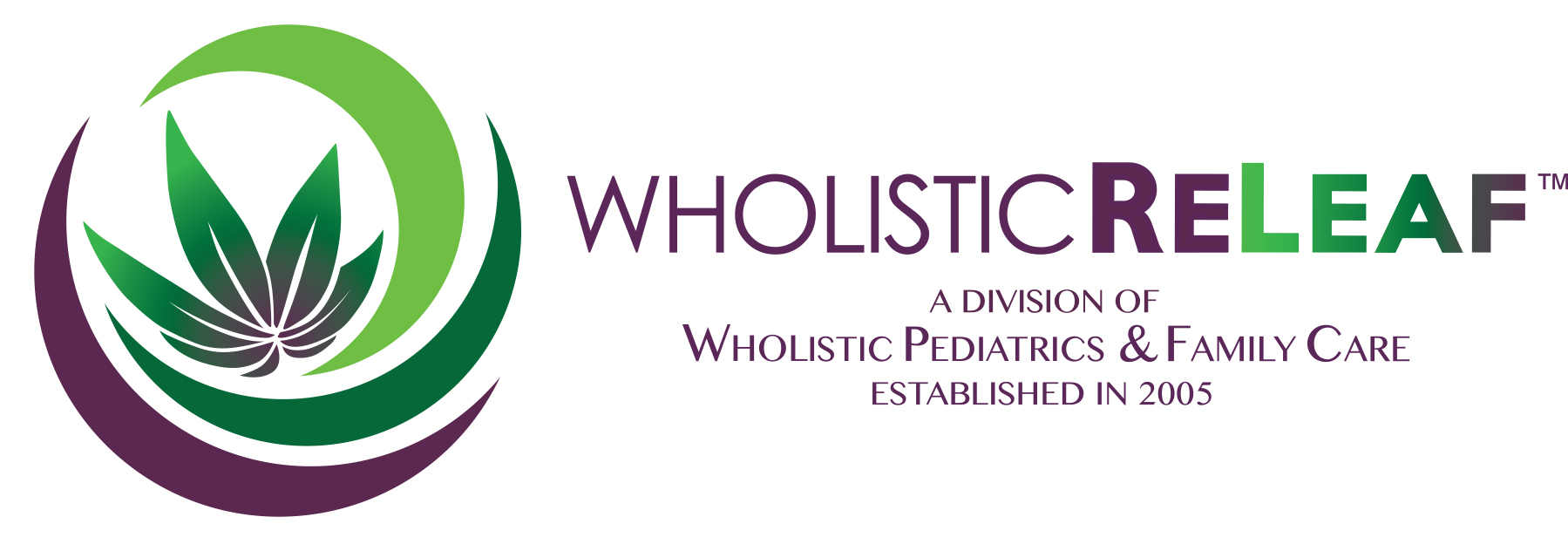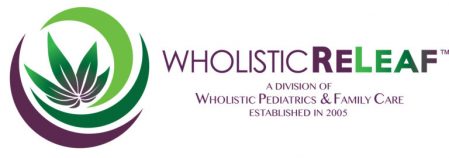In recent years, there has been a growing interest in exploring alternative treatments for children with Attention Deficit Hyperactivity Disorder (ADHD). Among these alternatives, medical marijuana has emerged as a topic of discussion, offering potential benefits for managing ADHD symptoms. In the state of Florida, where medical marijuana is legal for treating certain conditions in which a qualifying physician completes the required certification process, Wholistic Releaf has been at the forefront of providing education and guidance for patients seeking alternative treatments. Let’s delve into how medical marijuana, and non-psychoactive cannabinoids (e.g., CBD, CBN, and CBG), in particular, can offer relief for children with ADHD in the Sunshine State.

ADHD is a neurodevelopmental disorder characterized by symptoms of inattention, hyperactivity, and impulsivity. While conventional treatments such as stimulant medications and behavioral therapy are commonly prescribed, they are not always effective for every child and can sometimes cause unwanted side effects. This has led many families to explore alternative treatments, including medical marijuana.
At Wholistic Releaf, patients and families receive guidance from qualified physicians like Dr. David Berger (“Dr. David”), a board-certified pediatrician with more than 25 years of clinical experience. The physicians at Wholistic ReLeaf take a holistic approach to treatment by exploring lesser known cannabinoids before resorting to THC, the psychoactive component of marijuana.
One key cannabinoid gaining attention for its therapeutic potential is cannabidiol (CBD). Unlike THC, CBD does not produce psychoactive effects, making it an especially promising option for pediatric use. Research suggests CBD may help alleviate symptoms associated with ADHD, including hyperactivity and impulsivity, by interacting with the body’s endocannabinoid system and influencing neurotransmitter activity.
Another cannabinoid showing promise in ADHD treatment is cannabinol (CBN). While less studied than CBD, CBN is believed to have sedative properties and may help improve sleep patterns, which can be disrupted in children with ADHD. By promoting better sleep quality, CBN may indirectly contribute to improved attention and behavior during the day.
Cannabigerol (CBG), another non-psychoactive cannabinoid, has been identified for its potential neuroprotective and anti-inflammatory properties. Although research specifically on CBG and ADHD is limited, its ability to modulate neurotransmitter systems and reduce inflammation in the brain could offer benefits for children with ADHD. Whether treating ADHD or other qualified conditions, Wholistic ReLeaf takes a cautious, individualized approach when considering medical marijuana for pediatric patients. Dr. David and the other Wholistic ReLeaf providers take into account each patient’s unique needs and medical history, conducting thorough evaluations before recommending any treatment. In many cases, medical marijuana is used as a complementary therapy alongside conventional treatments, with careful monitoring of its effects.
It’s important to emphasize that medical marijuana is not a one-size-fits-all solution for ADHD. While some children may experience significant improvement in symptoms with cannabinoid-based treatments, others may not respond as favorably. Furthermore, the long-term effects of medical marijuana on pediatric brain development are still not fully understood, highlighting the need for ongoing research in this area.
Despite these challenges, the growing body of evidence supporting the therapeutic potential of medical marijuana for pediatric ADHD offers hope for families seeking alternative treatments. By working with knowledgeable providers, like those at Wholistic Releaf, and following a cautious, individualized approach, children with ADHD in Florida can explore the potential benefits of cannabinoids like CBD, CBN, and CBG as part of their comprehensive treatment plan. As research continues to advance, so too will our understanding of how medical marijuana can best be utilized to support the health and well-being of children with ADHD.

